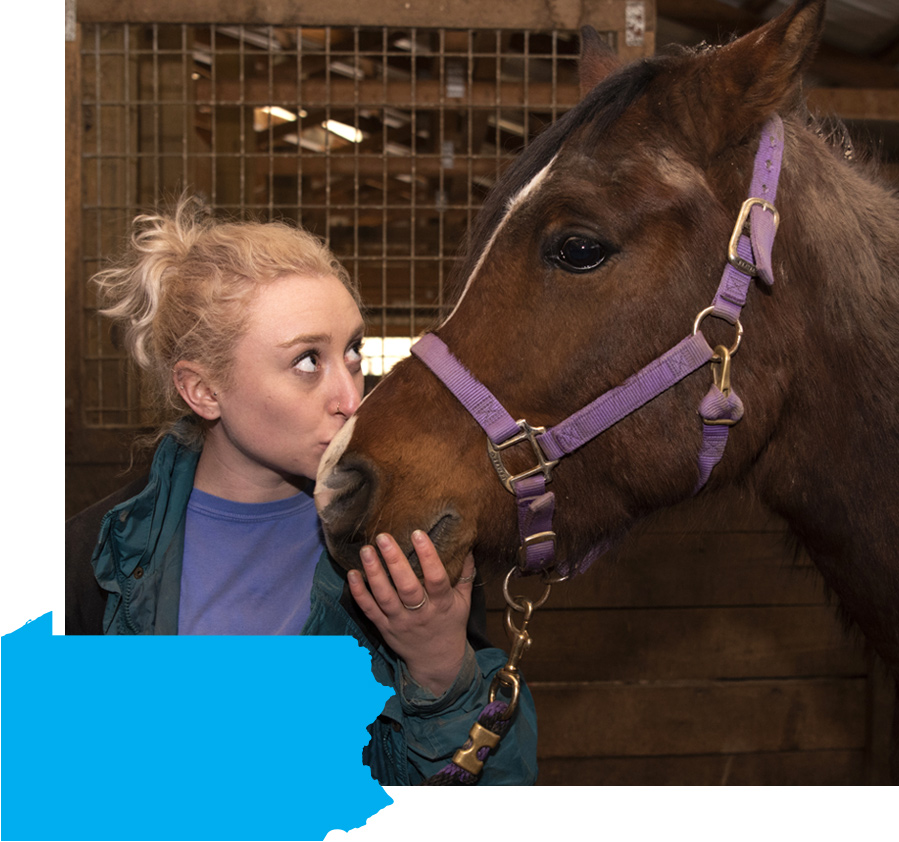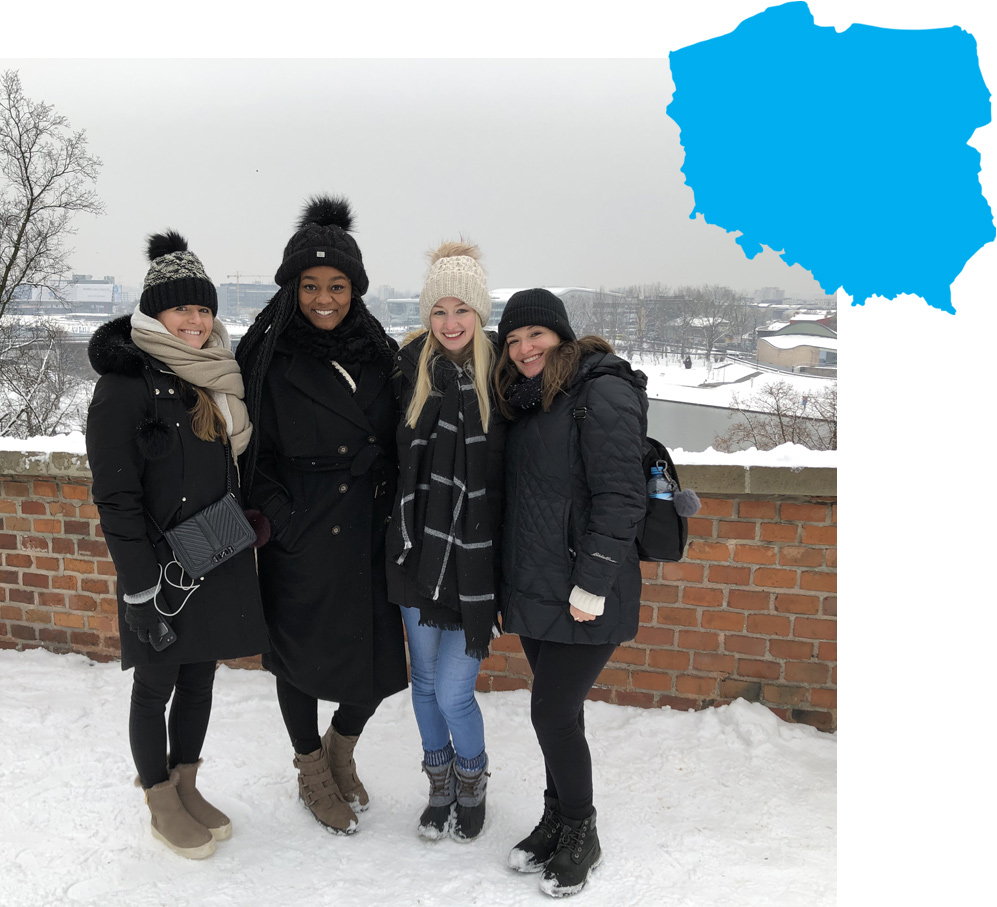

 Milton, Pa.
Milton, Pa.Thousands of horses are neglected or abused in the United States each year. Some are even sent to slaughterhouses in Canada and Mexico. For more than two years, Professor Jamie Hendry, management, has offered a home for horses in need on her Arabian horse farm in Milton, Pa.
What They’re Doing:
As her personal rescue operation grew, Hendry realized it was time to seek nonprofit status as a 501(c)(3) organization. Hendry turned to Professor Carl Milofsky, sociology and anthropology, who teaches courses on establishing nonprofits. His former students Lina Hinh ’19 and Mara Vinnik ’19 joined the effort.
“Our role will be helping to figure out what we need to do to start it, the challenges, how to get volunteers and figure out fundraising,” Hinh explains. She says they aim for the nonprofit to be established by spring semester’s end. Plans are afoot for a volunteer training and a spring open house, Hendry says.
What They Hope For:
Hendry says the nonprofit’s name, WellBeings, reflects its purpose: “to help recapture the well-being of Arabian horses in need and to help nurture the well-being of humans who seek to deepen their own spiritual sensibilities through mindful interactions with these huge, gentle souls.” Milofsky says nonprofit status allows WellBeings to “formally create a network of [volunteers]” in addition to pursuing financial support.
— Julia Stevens ’20
 Warsaw and Krakow, Poland
Warsaw and Krakow, Poland
Poland marked the 100th anniversary of its reclaimed independence on Nov. 11. However, for the last century Poland has been anything but free, as World War II and its aftermath had a grave impact on this central European country. The postwar damage is still highly visible, as 16 senior management students observed during a weeklong excursion to Poland this January. Led by Professor Skip McGoun, management, the students toured the historic cities of Warsaw and Krakow, sampled traditional Polish and Jewish cuisine and learned about Polish business trends.


In Warsaw, the students learned about residents’ efforts to rebuild their city that was 80 percent destroyed by the Nazis. They also spent a day at Kosminski University learning about business trends and how they will affect Poland in the future. Furthering their exploration of Polish history, the students toured the centuries-old Wieliczka Salt Mine and the Polin Museum of the History of Polish Jews. Toward their journey’s end, they visited the Auschwitz-Birkenau concentration/death camp, a sobering reminder of the Holocaust.
What They Learned:
“Visiting Auschwitz on that cold January day is a powerful memory that is sure to stay with me forever,” global management major Lucy Herring ’19 reflects. “As Americans, we tend to learn our side of history for most global events. This trip opened up a new perspective on world history for me, and I feel like a smarter and better person because of it.”
— Jill Britton ’19